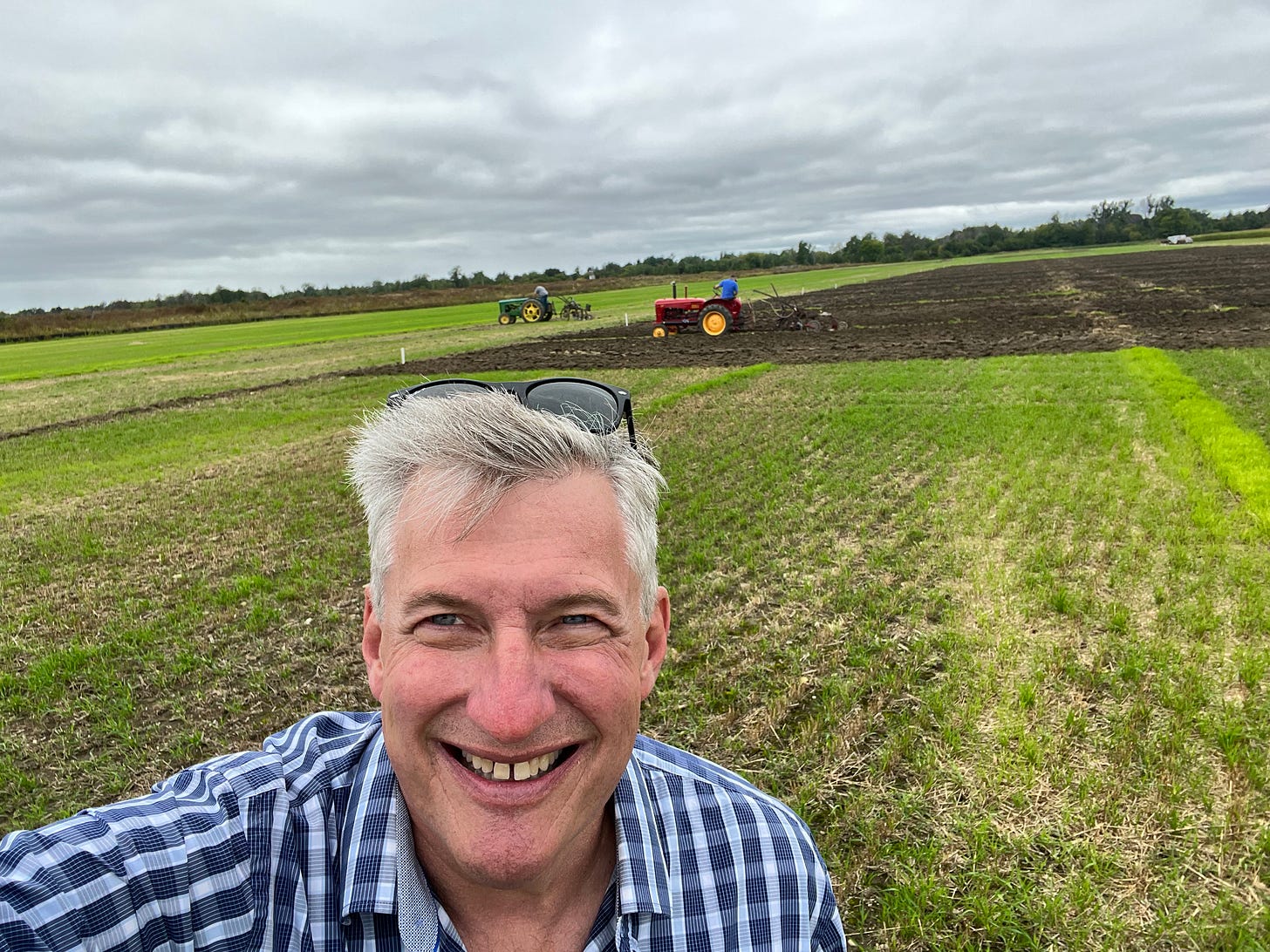The book is available in print, ebook and audio book formats.
[Chapter One] [Chapter Two] [Chapter Three] [Chapter Four] [Chapter Five]
Down with the Occupation
Many people in the region still have bad memories of those awful weeks in 2022. Regardless of the validity of the truckers’ complaints about vaccine mandates, or public health measures, and with sympathy for the economic loss many of them had to endure (along with plenty of other Canadians who never thought of blocking streets or terrorizing neighbourhoods), the occupation of our downtown was an affront we won’t forget, never mind forgive.
Pierre Poilievre not only supported the convoy but brought the truckers coffee and donuts. He gambled that he could ride the wave of COVID-related anger and resentment that sustained the people who sat in stinky loud rigs on Wellington all the way to 24 Sussex.
Well, maybe not quite that address, as the old house no longer serves as the prime minister’s residence. But you know what I mean.
It is therefore not surprising that the first position Bruce Fanjoy brought to his campaign was more visceral reaction than pure policy. The occupation traumatized so many of us who live or work downtown, in addition to threatening our institutions of public governance. It may feel exaggerated to say this, but the convoy almost became a threat to our existence as a peaceful country.
Cast your mind back to the days of endless horn blowing, look beyond the marches, and even go so far as to ignore the hateful symbols that flew around the convoy, including the Confederate flag and the odd swastika. Instead focus on the widespread disregard for laws and regulations that govern life in society.
There isn’t a place anywhere where you’re allowed to take over public roads and prevent others from going about their business. When people plan a protest, they have to let authorities know so that measures can be taken to ensure everyone else has a way to get where they need to be.
It would be a strong understatement to say those rules and conventions were not respected during the occupation. That is a problem that goes beyond inconveniencing those of us who live and work in Ottawa.
If one group gets away with endangering others, where does this stop? If the occupation can last weeks, who’s to say it can’t last months? Remember, it wasn’t until the Emergencies Act was invoked that the occupiers were dispersed.
The point of the rule of law is that it applies to everyone, no matter how strongly they feel about their favourite cause. If we make any exception, we no longer have the rule of law. It’s that simple, and it matters.
I think by now, with the second term of Donald Trump unfolding in front of our horrified eyes, we all see what can happen when voters allow one strong man to do whatever he pleases without having to face consequences.
To this day, more than three years after the fact, most residents in Ottawa – the entire region of Ottawa, not just downtown – still have the events of January and February 2022 in mind when we think of Pierre Poilievre and his supporters.
Some of us can still remember what downtown smelled like. What it sounded like. How businesses around Parliament Hill had to shut down. How residents in the affected areas feared going outside. How they couldn’t sleep due to the 24/7 horn blowing.
When the so-called Freedom Convoy rolled into Ottawa on a cold winter weekend in 2022, many of us in the Ottawa area didn’t really know what to expect.
We’re used to protests, including loud and annoying ones. It’s one of those things that come with living in the capital of a country. People come to visit the touristy things, but they also come to make their voice heard and their anger felt.
That’s fair, up to a point. Generally speaking, Ottawans are pretty tolerant. We bitch a bit when traffic disruptions make us late, but we also understand people have a right to come here and protest. We’re also used to foreign dignitaries coming to town and making a mess of our commute. Life in Ottawa is like that.
But the thing is, dignitaries and protesters usually leave at the end of the day. Parking trucks, bouncy castles and kiddie pools on Wellington for weeks on end is so far outside the norm it might as well be in a different time zone. Using porches and doorways as public toilets, harassing passersby, threatening journalists, taunting police officers – none of that was acceptable.
Even if they’d only stayed the initial weekend, it would have been difficult for the people of Ottawa. Diesel fuel is not easy on the nose or the lungs. For people with conditions that make breathing already difficult, such a heavy concentration of idling trucks was detrimental to their health.
The unsavoury flags, along with the F*ck Trudeau ones, seemed to be tolerated by the truckers. At any rate, the organizers didn’t rush to have them removed. Which led many to believe that the convoyers were OK with them.
It is not my intention here to rehash this saga in all its sad details. The occupation was a nasty affair, and we all know it. But I need to remind my gentle reader just how enthusiastic Pierre Poilievre was about the convoy before it showed up, and how supportive he was even during the occupation.
Astute political observers realized, when they saw how various Conservative politicians reacted to the trucks’ arrival, that this would be the end of the Erin O’Toole leadership era.
So why did Poilievre behave the way he did? Only he knows the answer to that question. But what we do know is that the people who supported the convoy gave money to his leadership campaign and turned out to vote for him.
It’s a bit cynical to suggest that a politician would support the illegal occupation of the country’s capital for his own career advancement, but unless someone has a better explanation, I can’t think of any reason why he did what he did.
Some people tried to justify the convoy by saying many Canadians were suffering economically because of the restrictions made necessary by the global pandemic. It is true that many people did suffer greatly because of the pandemic – starting with the people who caught the deadly disease, those who survived infection only to find themselves saddled with the effects of long COVID, those whose businesses went bankrupt because people couldn’t gather, those whose careers in health care have never been the same, or those who suffered adverse consequences from getting the vaccine. There is suffering all around, and nobody’s plight is more important than anyone else’s.
People have the right to protest whatever they feel needs protesting. But the convoy wasn’t just about protesting masks and vaccine mandates. And whether it was part of the design or not, the occupation contributed to delegitimizing our shared institutions of governance. Like courts, the police, and legislators.
For a certain constituency in this country, facts no longer matter. They seem to think it’s OK to act in bad faith, and to attack the integrity of others without any kind of due process. Like saying that Justin Trudeau belonged in jail for treason.
Convoyers didn’t respect orders from the police or municipal bylaws. They engaged in routine civil disobedience, and damaged property with what one could only describe as defiant glee. It’s not right, and one of the reasons why Bruce Fanjoy decided to run for office was to register his opposition to these tactics.
There are other issues that are fundamental to a healthy and prosperous society, including the environment and human rights. We will now turn to those.












